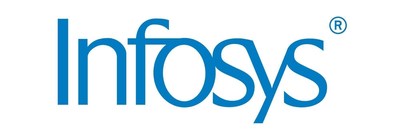Senscio Systems Awarded U.S. Patent for Pioneering Artificial Intelligence for Home Healthcare
Press Releases
Nov 14, 2017
BOSTON, Nov. 14, 2017 /PRNewswire/ — Senscio Systems today announced it was granted a U.S. Patent for the invention of a powerful artificial intelligence framework that enables people with chronic diseases to manage their health proactively and independently from home.
“This AI framework is extraordinary in that it functions like the human brain and employs a semantic model to create knowledge,” explained Dr. Piali De, CEO, Senscio Systems. “The artificial intelligence harnesses thousands of data points from within the patient’s home and generates insights that identify and prevent gaps in care, reducing the burden on physicians and transforming patient outcomes.”
Senscio Systems applied this patented AI framework in its flagship digital health solution called Ibis™. The artificial intelligence that powers the Ibis platform literally learns about the patient’s home environment and behaviors by continuously collecting and contextualizing behavioral and biometric data from the home setting, thereby creating a window into the patient’s health. Ibis detects adverse changes in the patient’s health and immediately alerts the patient, caregiver, and provider with recommendations for behavioral or clinical interventions that reduce the need for acute care or hospitalization.
“Technology-enhanced home healthcare is extremely important for the chronically ill,” said David Green, MD, a pulmonary medicine physician with Emerson Hospital and Atrius Health. “A system such as Ibis is so powerful because it detects changes in a patient’s condition before he or she may be aware of the significance of those changes. It will then direct the patient on how to administer the appropriate interventions to avoid a major exacerbation. Early intervention is crucial to helping patients with chronic disease remain as healthy and independent as possible.”
According to the U.S. Department of Health and Human Services, 5 percent of the population accounts for 50 percent of the country’s total healthcare expenditures. Delivering care for these patients costs upwards of $60,000 per year with an estimated 33% in avoidable costs. Ibis was designed to address this high risk, high cost population, the “super utilizers” who have multiple chronic conditions or whose chronic condition is at a severe level. Ibis combines patented artificial intelligence with human touch to provide personalized care management in the home, driving down the costs and yielding an average of 30% in net savings in medical costs per patient on an annual basis.
“In the next five years we will see technology start to transform how we care for people in the home and artificial intelligence is poised to become an integral part of home health care,” added Dr. De. “Ibis not only functions as a member of the patient’s care team, it augments the intelligence of patients and caregivers with artificial, cognitive assistance.”
Ibis has supported over 350 patients for more than 50,000 patient days and is proven to be transformative for individuals with severe COPD, CHF, diabetes, hypertension, depression and anxiety disorders:
- Over 1 million patient reminders issued
- Over 500,00 medications taken
- Over 600,000 vital signs and 200,000 symptoms measured
- Over 4,000 health exacerbations detected and addressed at home
In addition to artificial intelligence, a key component of the Ibis system is relationship based care and support. Each patient enrolled in the program is matched with a personal Care Navigator who develops a comprehensive care plan and coaches the patient on how to effectively use the Ibis care station. When the artificial intelligence flags a patient’s health status, the Care Navigator personally contacts the patient to ensure the patient follows the self-rescue measures directed by the AI and, if self-rescue measures fail or stall, coordinates timely and proactive interventions by the clinical care team to mitigate the situation in the home.
“What I like most about Ibis is that it engages patients in their own healthcare, which helps them feel less anxious and more active and empowered. This is a huge benefit to the patient.” said Brian Anderson, a Personal Care Navigator at Senscio Systems.
About Senscio Systems
Senscio Systems is the leading developer of a patented artificial intelligence framework that transforms vast amounts of data into precision insights for timely and effective decision making. Senscio’s first application of its AI is realized in Ibis™, a comprehensive digital health system that is redefining the future of complex health management with the perfect combination of technology and human touch. Ibis delivers better outcomes, lower costs, and improved support for patients and doctors. It reduces hospitalizations by up to 75%, generates net medical savings of 30% per patient per year, and enables 90% adherence by patients to their care plan compared with the norm of 50% compliance. For more information visit: www.sensciosystems.com and follow on Twitter @Senscio, LinkedIn, and Facebook @Senscio.
Editorial Contact:
Heidi Creighton
978-302-1198
[email protected]
View original content:http://www.prnewswire.com/news-releases/senscio-systems-awarded-us-patent-for-pioneering-artificial-intelligence-for-home-healthcare-300554908.html
SOURCE Senscio Systems


